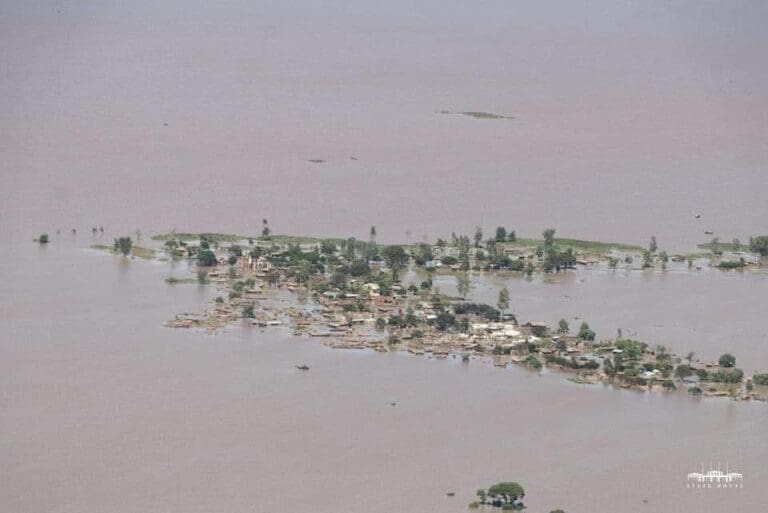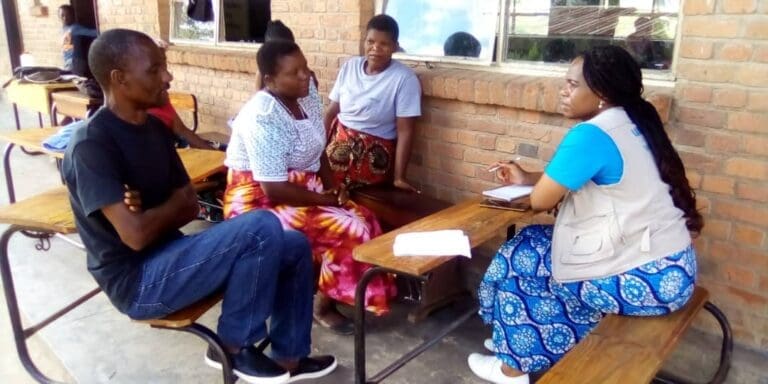From Lilongwe, I travel five hours by road to Malawi’s commercial hub, Blantyre, which was battered by the intense winds and rain that accompanied Freddy and caused catastrophic flash floods.
Some roads between Lilongwe and Blantyre are impassable, having being torn apart by Freddy. Still, as we set out from the capital, I am struck by the day’s sunny weather and clear skies. Green maize is springing up in the fields, smelling earthy and nutty, almost ready to harvest.
That is a heart-warming sight.
Maize is the major stable crop in Malawi, and 60 percent of all cropland in the country is devoted to its production. Most livelihoods in the country depend on agriculture. For many families, those fields of maize are a lifeline.

By the time we have traveled about halfway to Blantyre, however, it begins to rain. Under those gray skies, we pass fields badly damaged by strong winds.
As we get closer to Blantyre, located in the Shire Highlands, I see that boulders, some as big as cars, have cascaded down hills, destroying everything in their paths.
Seas of mud have washed away homes and bridges. Damage is evident everywhere.
It is a stark moment.
In Blantyre, I meet a Malawian welder, about 45 years old, who lost his wife and three children as well as his home and all his belongings in Cyclone Freddy. I can see that he is struggling to make himself strong as he shows us around his neighborhood, pointing out where the storm hit first, and explaining when this wall or that building collapsed.
Sometimes he stops speaking. It is clear that vivid memories are racing through his mind, bringing him to a halt. I can imagine him thinking: what kind of life will I live after this?
This is when I begin to realize the magnitude of the cyclone. As I return to the hotel not far from Blantyre’s Red Cross headquarters where we will be holding coordination meetings, I ask myself, how can I best support this man and others in the days I have among them?
I feel the weight of the responsibility to help restore his dignity, giving him not only immediate accommodation and food, but a way forward so that he doesn’t have to live on handouts.

To accomplish this, we need to coordinate carefully. In a breaking emergency, one vital question for responders is who is doing what, where and when? Everyone must understand how their individual roles braid together to support the distressed populations on the many fronts that they are already beginning to identify.
The stakes are high.
NEXT: I visit schools turned into temporary housing, and consider the community debate over education versus shelter.